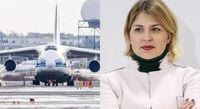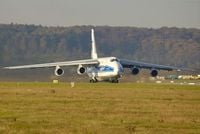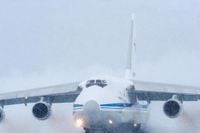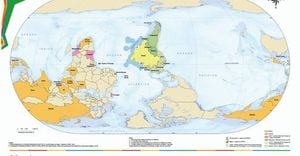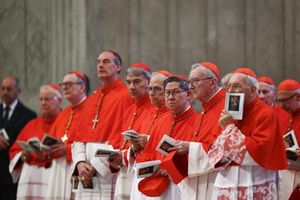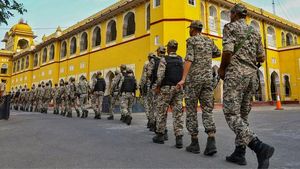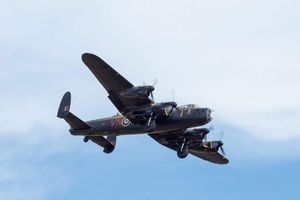Canada has initiated a legal process to confiscate the Russian An-124 "Ruslan" transport aircraft, which is owned by the Russian airline Volga-Dnepr and has been under Canadian arrest since February 2022. This significant development was confirmed by Ukrainian Vice Prime Minister and Minister for European and Euro-Atlantic Integration, Olga Stefanyshina, who announced the news on her Facebook page. The confiscation is part of Canada’s broader efforts to support Ukraine amid ongoing tensions with Russia.
The legal proceedings are being conducted under the framework of Canadian law regarding special economic measures. The final decision regarding the confiscation will be made by the High Court of Ontario, which is currently reviewing the case. Stefanyshina emphasized that this move represents another crucial step towards justice and the restoration of peace in Ukraine.
According to Stefanyshina, the Canadian Prosecutor General has filed a petition with the Ontario court for the confiscation of the aircraft based on documents provided by the Ukrainian government. This includes a decision from the High Anti-Corruption Court of Ukraine (VAKS) from August 2023, which approved the recovery of assets from the sanctioned Volga-Dnepr airline.
"This is yet another important step on the path to justice and restoring peace in Ukraine," Stefanyshina stated. She added that the legal efforts are the result of close collaboration between the Ukrainian Ministry of Justice, the Ministry of Foreign Affairs, and Canadian authorities.
The An-124 "Ruslan" is a massive aircraft, measuring approximately 69 meters in length—about three-quarters the length of a football field—and with a wingspan that exceeds its length. Its height is comparable to that of a seven-story building, standing at 21 meters. The aircraft has a carrying capacity of 120,000 kg and can reach speeds of up to 865 km/h. It was first flown in December 1982 in Kyiv, and a total of 56 units were built, including a prototype.
Since its arrival at Toronto Pearson International Airport in late February 2022, the Ruslan has become a notable fixture, having originally delivered COVID-19 testing equipment. It has remained grounded in Canada due to a ban on Russian airlines operating in Canadian airspace.
Stefanyshina reiterated the significance of this legal action, stating, "I am convinced that all actions are leading to one thing: the Ruslan will soon have a new home—in Ukraine, where it will serve for the benefit of our state." This sentiment reflects a broader commitment from both Ukrainian and Canadian officials to utilize confiscated Russian assets to support Ukraine.
In June 2024, leaders from the G7 nations—including the United States, Japan, Germany, France, the United Kingdom, Italy, and Canada—agreed to allocate $50 billion to Ukraine, utilizing future revenues from frozen Russian assets. The European Union has also pledged 18.1 billion euros, while the U.S. committed $20 billion, Canada promised 5 billion Canadian dollars (approximately $3.6 billion), the UK offered 2.26 billion pounds (around $3 billion), and Japan committed 471.9 billion yen (about $3 billion).
On April 25, 2025, the National Bank of Ukraine indicated that the full confiscation of arrested Russian assets in favor of Ukraine would not significantly negatively impact the perception of the euro or its role in the international financial system, despite concerns raised by the European Central Bank.
In summary, Canada’s move to confiscate the An-124 "Ruslan" is not just a legal maneuver but a part of a larger strategy to support Ukraine against Russian aggression. As the High Court of Ontario deliberates on this case, the implications of this decision could resonate far beyond the courtroom, potentially setting a precedent for how nations handle assets linked to sanctioned entities.
The situation remains dynamic, and as more developments unfold, both Ukrainian and Canadian officials are optimistic about the aircraft’s eventual transfer to Ukraine. This legal battle is emblematic of the ongoing conflict and the international community's efforts to hold Russia accountable for its actions.
